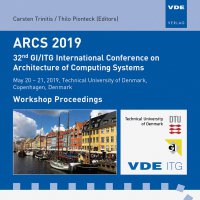Semantic Synergy Exploration in Interface Description Models of Heterogeneus Vehicle Frameworks: Towards Automotive Meta Interface Description Model
Conference: ARCS Workshop 2019 - 32nd International Conference on Architecture of Computing Systems
05/20/2019 - 05/21/2019 at Copenhagen, Denmark
Proceedings: ARCS Workshop 2019
Pages: 8Language: englishTyp: PDF
Personal VDE Members are entitled to a 10% discount on this title
Authors:
De, Sangita; Niklas, Michael (Corporate System and Technology SW, Continental Automotive GmbH, Regensburg,Germany)
Mottok, Juergen (Dept. of Electrical Engineering and Information Technology, Ostbayerische Technische Hochschule Regensburg, Regensburg, Germany)
Brada, Premek (Dept. of Computer Science and Engineering, Faculty of Applied Sciences University of West Bohemia, Pilsen, Czech Republic)
Abstract:
This The vehicle is evolving to a complex network of heterogeneous subsystems of ECUs, sensors and actuators, each with different computational requirements. These sub- systems are connected via bus systems following different communication paradigms like e.g. signal based or service-oriented communications. This has led to the heterogeneous syntax of describing interfaces even though the semantics of the interfaces are similar. The wide variety of Interface Description Languages (IDLs) in automotive industry hinders partly with the efficient collaboration between different suppliers and the OEMs in the automotive industry. Given this wide variety of automotive IDLs, what could be more beneficial, from a software engineering point of view, is a generic automotive domain specific IDL that can satisfy all the fundamental requirements of the heterogeneous subsystems. This paper describes an approach to compare and correlate IDLs based on semantic similarities of the languages, considering the two aspects: application description and underlying message frameworks used in the different domains of given automotive subsystems. With the exploration of semantic synergies between the IDLs, various domain specific and domain-agnostic frameworks can be compared and correlated. The results can be generalized and abstracted to define a generic Meta IDL which could support use cases like e.g. domain-agnostic functional models and migration of software components between different kinds of automotive subsystems.


